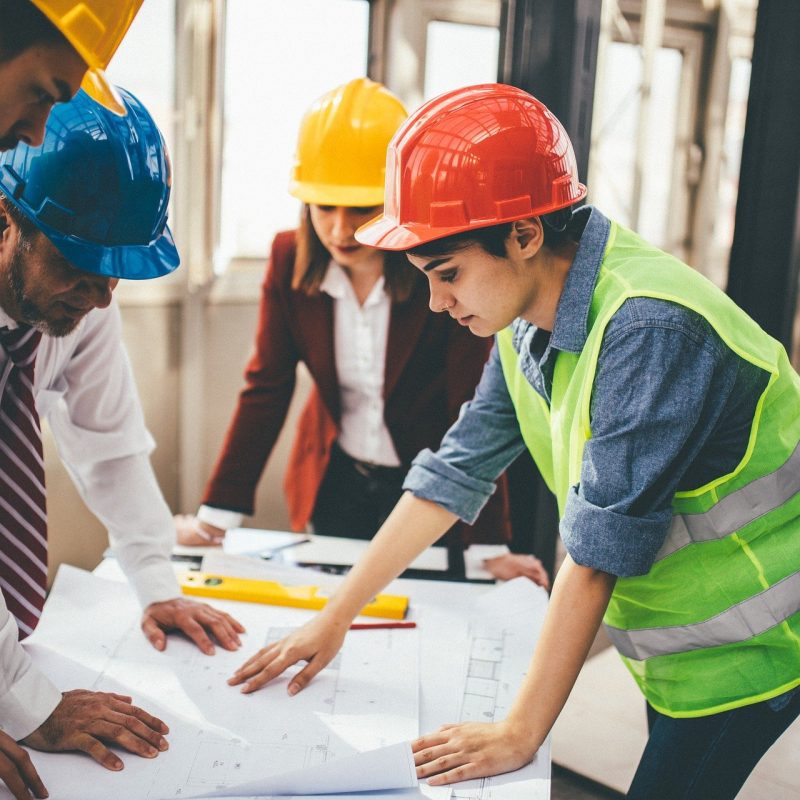Feasibility Construction: Creative Solutions to Overcome Environmental Challenges
31 July 2024
Learn about feasibility construction strategies to tackle environmental challenges. Discover waste reduction, habitat protection, and more with GHP today.
Balancing construction projects with environmental considerations is increasingly important today. Feasibility construction involves carefully planning and implementing strategies to ensure that projects are not only viable but also environmentally responsible. By addressing potential environmental challenges early in the planning process, construction projects can proceed smoothly, sustainably, and with minimal ecological impact. Let’s explore some of the key environmental challenges in construction and how feasibility studies can help overcome them.
Environmental Challenges in Construction
Environmental challenges are inherent in construction projects. Addressing these challenges requires a deep understanding of the impact’s construction can have on the environment.
• Waste Generation – Construction activities generate significant amounts of waste, from building materials to packaging. Proper management of this waste is crucial to prevent it from ending up in landfills and causing further environmental harm. Recycling and reusing materials are effective strategies to reduce waste generation.
• Habitat Destruction and Ecosystem Disruption – Building on undeveloped land can lead to habitat destruction and disruption of local ecosystems. This impact can be particularly significant in Australia, where unique wildlife and plant species often face threats from construction activities. Mitigating these impacts involves careful site selection and implementing measures to protect local flora and fauna.
• Air and Noise Pollution – Construction sites are notorious for generating air and noise pollution. Dust, emissions from machinery, and noise can affect both the environment and the health of nearby residents. Effective control measures, such as dust suppression techniques and the use of low-emission machinery, are essential to minimise these impacts.
• Water Contamination and Resource Depletion – Construction activities can contaminate local water sources and contribute to resource depletion. Managing runoff, preventing chemical spills, and using water-efficient practices are critical to protecting water quality and conserving resources.
Feasibility Construction: Strategies for Minimising Environmental Impact
Tackling these environmental challenges requires careful planning and innovative solutions. Here’s how feasibility construction can help develop strategies to minimise environmental impact:
• Waste Reduction – Implementing waste reduction strategies starts with careful planning. Using prefabricated components can significantly reduce onsite waste. Additionally, establishing recycling programs on construction sites ensures that materials like metal, concrete, and wood are repurposed instead of discarded.
• Habitat Protection – Protecting local habitats involves conducting thorough environmental impact assessments before beginning construction. Buffer zones can be established to safeguard sensitive areas, and construction schedules can be adjusted to avoid disrupting wildlife during critical periods, such as breeding seasons.
• Pollution Control – To control air and noise pollution, construction companies can employ various techniques. Dust can be managed through water spraying and the use of barriers. Using electric or hybrid machinery reduces emissions, and scheduling noisy activities during less disruptive times can help mitigate noise pollution.
• Water Conservation – Water conservation strategies include using water-efficient fixtures and implementing greywater systems for non-potable uses. Rainwater harvesting can also supplement water needs on construction sites, reducing reliance on local water supplies.
Feasibility construction is essential for ensuring that projects not only meet their goals but also respect and protect the environment. By understanding and addressing environmental challenges through waste reduction, habitat protection, pollution control, and water conservation, construction projects can achieve sustainability. GHP conducts expert feasibility studies to ensure your project will overcome any environmental challenges, providing peace of mind and a commitment to responsible construction. Talk to us to learn more about our comprehensive feasibility services.
Optimized by: Netwizard SEO

